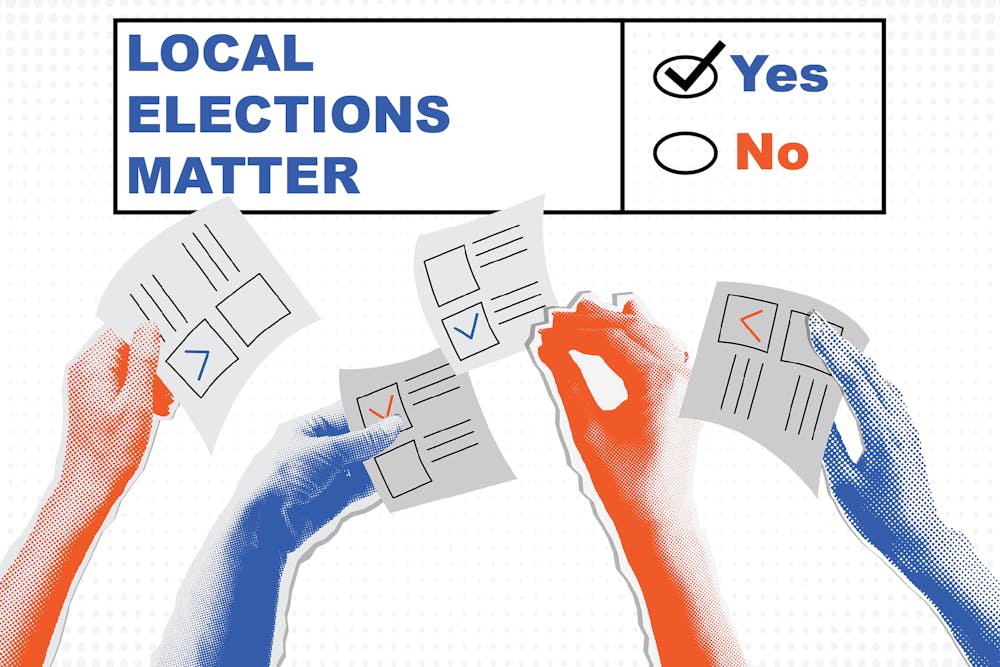If someone were to ask you who you’re voting for, your mind would naturally go to a presidential candidate. It makes sense — it’s the most high-profile race in the country, and with that comes the most publicity through news stories, debates and incessant ads. It’s also the reason why so many people feel their vote is useless.
When we primarily associate our vote with what’s at the top of the ticket, our impact can feel insignificant. It’s valid to feel unheard in presidential elections, whether you’re from a state disproportionately represented in the Electoral College or from a state that repeatedly votes opposite of your party. And considering the recent occasions where the Electoral College vote doesn’t reflect the popular vote, it’s understandable to become disillusioned with the idea that your vote even matters.
But really, it’s all the more a reason to direct your attention to local elections where, with a smaller electorate, your vote carries more weight and you’re likely to feel the impacts much sooner — it’s why you have to vote down the ballot.
On North Carolina ballots, races are ordered by the size of the electorate. With that order often comes a perception of their importance. At a certain point, wherever that perceived importance tapers off, many people stop voting. This phenomenon is called voter roll-off, and it’s a central part of America’s civic engagement problem. As voters willingly sacrifice their ability to influence the governance of their state, county or city, they reinforce voter apathy.
A study conducted in 2022 examined voter roll-off rates of the last decade in state legislative races. Roll-offs occurred in a significant amount of the races they analyzed, and affected Democratic candidates more than Republican.
The reasons for roll-off can vary; some down-ballot races are uncontested, leaving voters less motivated to bubble next to a candidate who is already going to win. More concerningly, it’s also due to a lack of interest and information.
While voting down-ballot is a notable improvement from voter roll-of, it shouldn’t stop there. The mere bubbling next to a candidate’s name without knowledge of who they are or what policies they support is still, even if to a lesser extent, a form of inaction.
At the same point when voter roll-off occurs, voters know less about the down-ballot races. As they reach candidates with less media coverage or more obscure offices, the burden falls on the voter to carry out their own research. Many don’t. Instead, they vote along party lines.
This shortcut shirks the responsibility to look up candidates and what they stand for. While a candidate's party is increasingly indicative of their policies, party-line voting can be a crucial mistake. Taking that extra step can lead voters to discover that the only candidate in the N.C. Auditor race with actual experience as an accountant is Libertarian Bob Drach.




